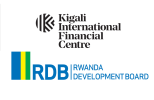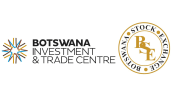The Growing Business Opportunities in Cameroon
Cameroon, a vibrant nation in Central Africa, is a land of untapped business potential. Its strategic location and diverse economy offer a myriad of opportunities for entrepreneurs and investors.

From agriculture to technology, the sectors ripe for investment are vast. The government’s initiatives to improve the business climate further enhance the prospects for business success.
This article delves into the growing business opportunities in Cameroon. It provides insights into the factors contributing to the country’s economic growth and how to capitalize on them. Whether you’re an entrepreneur, investor, or business student, this guide is for you.
Cameroon’s Strategic Location and Economic Potential
Cameroon is strategically located in the heart of Africa. This central position provides easy access to both the Atlantic and the vast African market. It’s a gateway for trade and investment in the region.
The country’s economy is one of the most diverse in Africa. It’s fueled by various sectors such as agriculture, mining, manufacturing, and services. This diversity offers a wide range of business opportunities.
Cameroon’s economic potential is further enhanced by its rich natural resources. These include fertile agricultural lands, mineral deposits, and renewable energy sources. These resources provide a solid foundation for business growth.
In addition, the country’s bilingual policy (English and French) facilitates business communication. This makes Cameroon an attractive destination for international businesses and investors.
Key Sectors with Growth Potential
Cameroon’s economy is characterized by several key sectors. These sectors present significant growth potential and business opportunities.
The agricultural sector is a major contributor to the country’s GDP. It employs a large portion of the population. Opportunities abound in agribusiness, including the production and export of cash crops like cocoa, coffee, and cotton.
The energy sector, particularly renewable energy, is another promising area. With abundant sunlight, water, and biomass resources, Cameroon is ripe for solar, hydro, and biomass projects.
The mining sector is also significant. Cameroon is rich in resources like bauxite, gold, iron ore, and diamonds. These resources offer opportunities for exploration and extraction businesses.
The technology scene is emerging, with mobile technology and fintech startups leading the way. This sector is expected to grow rapidly in the coming years.
Finally, the service sector, including tourism, education, and healthcare, offers diverse opportunities. With a growing middle class, demand for these services is on the rise.

Government Initiatives and Investment Climate
The Cameroonian government plays a crucial role in shaping the business landscape. It has implemented several initiatives to attract foreign investment and improve the business climate.
One such initiative is the creation of the Cameroon Investment Promotion Agency (CIPA). This agency facilitates investment by providing information and support to potential investors.
The government also offers incentives and tax breaks for certain industries or regions. These incentives aim to stimulate economic activity and job creation.
However, challenges such as bureaucracy and corruption persist. Despite these challenges, the government’s efforts have resulted in a steady increase in foreign investment in recent years.
The Backbone of Cameroon’s Economy: Agriculture
Agriculture is a vital sector in Cameroon’s economy. It employs a large portion of the population and contributes significantly to the country’s GDP.
Opportunities abound in agribusiness, particularly in the production and export of cash crops. Cocoa, coffee, and cotton are among the top exports.

Innovations in agricultural technology (AgTech) are also creating new opportunities. These technologies can revolutionize farming practices and increase productivity.
However, climate change poses a significant threat to agriculture. Businesses must consider this factor and explore opportunities for sustainable and climate-resilient farming practices.
Renewable Energy and Mining: Untapped Resources
Cameroon’s energy and mining sectors hold immense potential. The country is rich in natural resources, including bauxite, gold, iron ore, and diamonds.

Renewable energy is another promising area. With abundant sunlight, water, and biomass resources, Cameroon is well-positioned for solar, hydro, and biomass projects.
However, these sectors require significant investment and technical expertise. Local and foreign investors can play a crucial role in harnessing these untapped resources.
Technology and Innovation: The New Frontier
Cameroon’s technology scene is emerging rapidly. Mobile technology and fintech startups are leading the way, offering innovative solutions to local challenges.

The country’s young, tech-savvy population is a driving force behind this growth. They are not just consumers, but creators of technology, shaping the future of Cameroon’s digital landscape.
Investors and entrepreneurs who recognize this potential can tap into a vibrant and growing market. The opportunities are vast, from e-commerce and digital services to software development and tech education.
Infrastructure Development: Enabling Business Success
Infrastructure plays a crucial role in Cameroon’s business landscape. It supports the growth of various sectors, from agriculture to technology.
Transportation networks, for instance, facilitate the movement of goods and people. They connect rural producers to urban markets, boosting trade and economic activity.
Telecommunications infrastructure, on the other hand, is vital for the digital economy. It enables connectivity, fostering innovation and opening up new business opportunities.
In essence, infrastructure development is a key enabler of business success in Cameroon. It lays the groundwork for economic growth and prosperity.
Trade Agreements and Market Access
Cameroon’s participation in trade agreements opens up new markets. It allows businesses to expand their reach beyond national borders.
One significant agreement is the African Continental Free Trade Area (AfCFTA). It provides Cameroon with access to a market of over 1.2 billion people.
Moreover, Cameroon’s port facilities enhance its export potential. They serve as a gateway for goods to reach international markets.
In conclusion, trade agreements and market access are vital for business growth in Cameroon. They offer opportunities for businesses to scale and thrive.
Overcoming Challenges: Risks and Solutions
Doing business in Cameroon comes with its share of challenges. Bureaucracy and corruption can pose significant hurdles for businesses.
However, understanding local business practices and regulations can help navigate these issues. It’s crucial to be aware of the business environment and adapt accordingly.
Moreover, the Cameroon Investment Promotion Agency (CIPA) plays a key role in facilitating investment. It provides support and guidance to businesses, helping them overcome challenges.
In conclusion, while there are risks, solutions exist. With the right approach and support, businesses can thrive in Cameroon.
Case Studies: Success Stories from Cameroon
Cameroon is home to many successful businesses and entrepreneurs. For instance, the fintech startup, Djangui, has revolutionized savings and credit systems in the country.
Another success story is the agribusiness company, Ndawara Tea Estate. It has become one of the largest tea producers in West Africa, employing thousands of locals.
These case studies demonstrate the potential for business success in Cameroon, inspiring others to follow suit.
“
Conclusion: Seizing Opportunities for Business Success
Cameroon’s diverse economy offers a wealth of business opportunities. From agriculture to technology, there are sectors ripe for investment and growth.
However, success requires understanding the local business climate and adapting to it. This includes navigating regulatory challenges and building strong local partnerships.
Despite the challenges, the potential for business success in Cameroon is significant. With the right approach, entrepreneurs and investors can tap into these opportunities and contribute to the country’s economic growth.













































